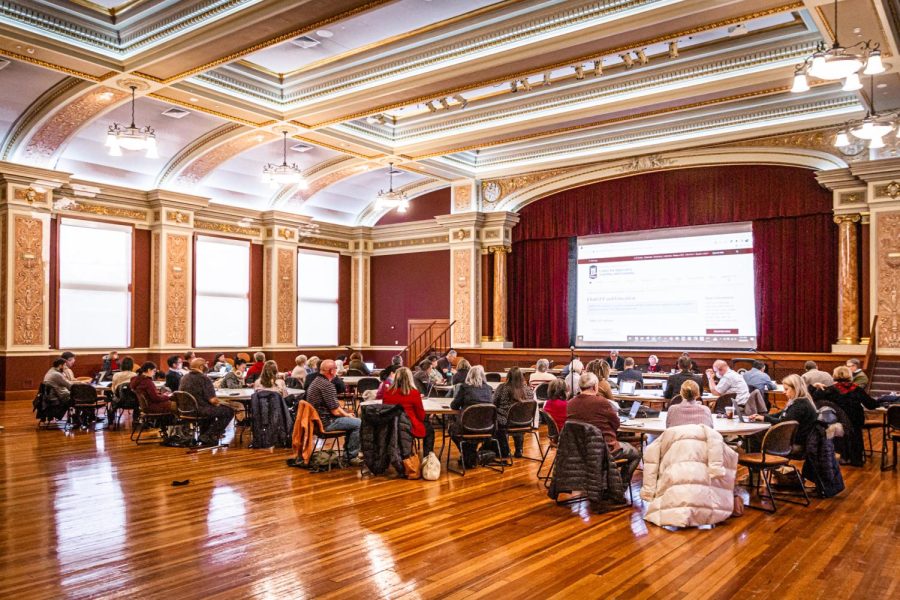Faculty Senate talks phishing scams, AI cheating
Members of the Faculty Senate sitting in banquet style seating at Wednesday’s meeting at Altgeld Hall in the second floor auditorium. (Mingda Wu | Northern Star)
January 26, 2023
DeKALB – In NIU’s first Faculty Senate meeting of 2023, members discussed virtual threats, artificial intelligence boosting plagiarism and the future of SURSMAC.
CYBER CRIME AGAINST NIU
In a report explaining the role of information security at NIU, Senior Director of IT Infrastructure Fred Williams addressed the issue of cyber crime. Williams described the process of how these crimes are committed and the severity of the virtual network of criminals who are looking to profit off of other people’s information.
A common cyber crime currently affecting NIU faculty and students is phishing, the process of sending false emails in an attempt to gain personal information to sell.
“NIU transacts over six and a half million emails per month, and of those, we positively identify in our office 150 thousand malicious emails,” Williams said. “That’s over one phishing email per person, faculty, staff and students, per week at NIU.”
Williams said he is searching for ways to educate and inform students and staff on the dangers of phishing emails and how to identify them.
CHATGPT
During the first few moments of the meeting, Faculty Senate President Ismael Montana discussed the issue of students using ChatGPT, an AI that mimics human conversations to produce realistic responses.
Although originally designed to assist in online customer service, according to its developers, OpenAI, many have been using this AI to plagiarize academic assignments that appear genuine to faculty members.
“How do we as faculty members sustain students’ creative work versus things that are being done on behalf of a student tutors system?” Montana said.
Though ChatGPT has become a significant issue surrounding many universities, Montana stated that efforts will be made to find a solution to this problem.
SURSMAC DISSOLVEMENT
The State University Retirement System Member Advisory Committee (SURSMAC) may be dissolved.
SURSMAC, according to the Staff Council Member Handbook, is a council that observes and records statewide decisions regarding retirement packages. The committee has decided that SURSMAC has become an informational outlet for retirement and has fulfilled its purpose.
A faculty senate meeting regarding the future of SURSMAC will be held this spring where members will vote to determine the dissolution of the committee.







